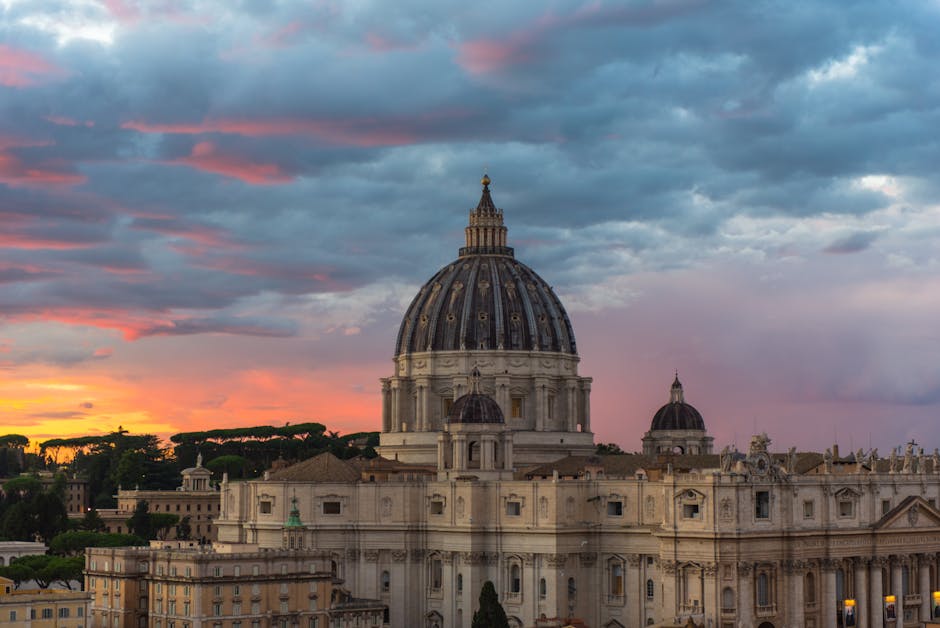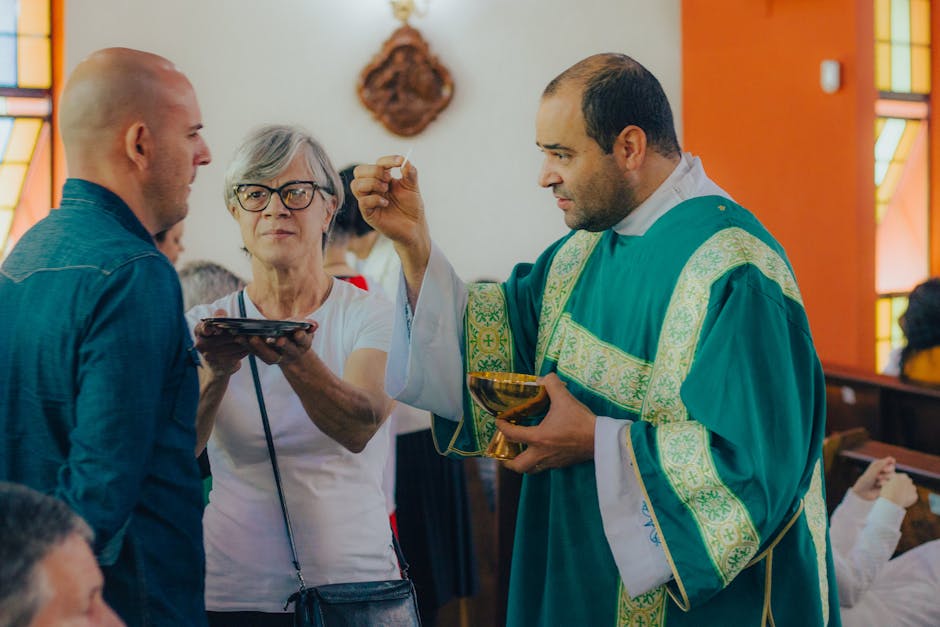There’s something delightfully medieval about the question, “How do I know God’s will for my life?” It echoes through cathedral halls and whispers in monastery gardens—yet remains stubbornly relevant in our hyperconnected era of endless options and spiritual confusion.
Picture this: a 14th-century novice monk, Brother Thomas, pacing stone corridors at midnight, wrestling with the same question that keeps modern believers awake—except his options were considerably fewer than yours. Stay at the monastery or return to his father’s blacksmith shop? Today’s seeker faces a dizzying array of paths while searching for that divine thumbs-up.
The Great Misunderstanding
The quest to discern God’s will often begins with a fundamental misconception—that somewhere in the heavens exists a detailed, leather-bound playbook with your name embossed on the cover, containing precise instructions for every crossroad you’ll ever face.
“Many Catholics approach God’s will like it’s a cosmic treasure hunt,” explains Sister Maria Constance, a Benedictine with four decades of spiritual direction experience. “They’re looking for hidden clues and secret signs, when what God primarily desires is relationship, not robotic obedience to an inscrutable plan.”
This treasured hunt mentality transforms ordinary decisions into spiritual minefields. Should I take this job? Is this the person I should marry? Am I meant to live in Cleveland or Denver? The anxiety builds as we search for definitive answers, often forgetting that God speaks in more substantial ways than through convenient parking spots or random Bible verses.
The Three Circles of Discernment
Catholic tradition offers a more nuanced approach through what spiritual directors sometimes call “the three circles of God’s will.”
The first circle—God’s sovereign will—encompasses everything that actually happens, whether we like it or not. Mountains rise, stars burn, civilizations fall. This cosmic administration runs whether we acknowledge it or not.
The second circle—God’s moral will—is revealed through scripture, tradition, and Church teaching. This isn’t mysterious: don’t steal, love your neighbor, honor your parents. These boundaries aren’t restrictive but protective—like guardrails on mountain roads.
The third circle—God’s personal will—addresses those life-specific questions that keep you awake at night. Here’s where discernment gets interesting and personal.
The Whispering Cathedral of Your Life
“God speaks in the language of desire—holy desire,” explains Father Dominic Sanchez, a Jesuit spiritual director I interviewed while researching this piece. “What brings you deep, lasting joy? What uses your gifts most fully? These aren’t selfish questions but deeply spiritual ones.”
This approach might sound suspiciously simple to Catholics raised on dramatic conversion stories and miraculous interventions. Yet throughout Catholic history, saints have recognized that God often works through our deepest, healthiest desires rather than against them.
St. Ignatius of Loyola, master of discernment, developed his Spiritual Exercises around this very principle. He taught that when we’re aligned with God, our deepest desires and God’s wishes harmonize like cathedral pipes in a magnificent organ. The sound they produce together is called consolation—that sense of rightness, peace, and energy that signals alignment with divine purpose.
The Compass, Not the Map
Father Thomas Green, in his classic “Weeds Among the Wheat,” suggests we stop seeking a divine GPS with turn-by-turn directions and instead learn to use a spiritual compass.
A compass doesn’t tell you which specific path to take up the mountain but keeps you oriented toward magnetic north. Similarly, God’s will isn’t typically about choosing between the accounting job or the teaching position but about bringing God’s love and truth into whichever field you enter.
This explains why identical twins raised in the same faithful household might find God’s “will” leading one to medicine and another to music. God’s will isn’t narrowly prescriptive but creatively adaptive.
The Saints and Their Surprising Paths
The saints offer refreshing perspectives on divine guidance. St. Thérèse of Lisieux never received a dramatic sign for her vocation—just a growing conviction nurtured through prayer. St. Francis initially misinterpreted God’s call to “rebuild my church,” taking it literally before realizing it meant spiritual renewal.
Even Mother Teresa experienced what she called “the darkness” for decades—continuing her work despite feeling no connection to God. She understood that God’s will wasn’t about feeling but about faithfulness.
Practical Steps for Modern Pilgrims
For today’s Catholic seeking divine guidance, several time-tested practices offer clarity:
- Regular Prayer: Not just talking at God but creating space to listen. Silence isn’t emptiness but the necessary condition for hearing the divine whisper.
- Scriptural Immersion: The Bible isn’t a magic 8-ball for specific answers, but it shapes the mind and heart to think more like God.
- Community Discernment: Bring your questions to trusted, spiritually mature friends who know you well enough to spot self-deception or fear-based decisions.
- Seek Wisdom in Tradition: The Church’s 2,000-year tradition offers a treasure of discernment wisdom that prevents us from reinventing spiritual wheels.
- Pay Attention to Joy: Not fleeting happiness but that deep-seated sense that you’re doing what you were made for.
- Embrace the Experimental Method: Sometimes you must try something to know if it’s right. Take reversible steps before irreversible leaps.
When God Seems Silent
Perhaps the most challenging aspect of discernment comes during times of divine silence. When heaven’s switchboard seems permanently on hold, remember that growth often happens in these apparent voids.
“The silence of God isn’t absence but presence too deep for words,” explains Sister Josephine Carney, who leads discernment retreats in the Ignatian tradition. “Like a master teacher who doesn’t answer every question immediately, God develops our spiritual muscles through the struggle of discernment itself.”
The Freedom of God’s Will
The beautiful paradox of seeking God’s will is that it leads not to restriction but to profound freedom. As Augustine famously wrote, “Love God and do what you will.” When your heart beats in rhythm with the divine heart, your choices naturally align with God’s desires.
This doesn’t mean life becomes effortless or that difficult choices disappear. Rather, like a musician who’s practiced scales for decades, you develop spiritual instincts that guide you even through complex improvisations.
The next time you find yourself anxiously searching for God’s will, remember you’re not hunting for a hidden treasure but learning to dance with a partner who’s been waiting for you all along. The steps might not always be clear, but the music never stops, and your Partner never leaves the floor.




